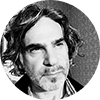Imagine that you woke up one morning, turned on your local news and heard the following uttered from the newsreader: “a cure for cancer has been found.” Quickly, you turn up the volume only to hear that the news gets even better. This cure works on all known cancers and only requires that the patient take a single pill, just once. Sounds pretty simple: take your medicine and you regain control of your life.
However, no matter how smart the scientists were who developed this cure, no matter how well it worked in clinical trials, this miracle of modern medicine is 100% ineffective if the patient does not swallow the bloody thing.
Now, this scenario is an exaggeration, but the actual truth is not so far-fetched. Some studies estimate that 50% of all patients with chronic obstructive pulmonary disease (COPD) do not follow their treatment as prescribed. As a result, millions of patients do not get the maximum benefit of medical treatment, resulting in poor health outcomes, lower quality of life and increased healthcare costs.
So, whom do we blame? It is not just the patient who should bear responsibility for the non-adherence (aka non-compliance) epidemic. A closer look reveals that there is considerable culpability to go around and some of it lies in the laps of healthcare professionals. If we want to improve on this situation, we need to educate, communicate and empower our patients.
Educate – Many patients have a poor understanding of their disease state, and this may translate to an under-appreciation of the need for full adherence to treatment. Patients need a working knowledge of the disease process in order to crystallize the importance of treatment.
Communicate – Improving two-way communication between healthcare professionals and patients on what is happening—and what will happen—will return positive results. This is when the medical profession is the most valuable, because the patient is at their most vulnerable. Setting proper expectations of treatment, including how it will work and when it may begin to work, is crucial to fostering success.
Empower – Patients are often reluctant to accept their important role in this process, and I do not only mean the physical consumption of medication. Patients need to feel empowered and recognize that they do have some say over a situation that they may believe is totally out of their control. Patients need to feel comfortable about asking questions related to their disease and any treatment that is/will be prescribed. Physicians should welcome this sense of involvement and not automatically think of this as a nuisance.
The noted clothier, Sy Syms, said it best over 30 years ago: “an educated consumer is our best customer.” He was correct then, and his words ring true today. An educated healthcare consumer may ask a few more questions, and even push back a little, but at the end of the day, this informed and engaged patient will see the bigger picture and take their medicine.
RELATED TOPICS

Ken is a great deal more than just the president of a medical communications company. He is something of a hybrid. He’s part marketing manager, part creative director, and part copywriter. To the chagrin of his peers—but to the delight of his clients—Ken is a consummate perfectionist. As a former creative director for a high-end consumer agency, he challenged his creative teams to go beyond the mundane to produce work with real creative impact, something he’s just as fervent about today. From producing and directing TV commercials, to launching DTC and Rx-to-OTC switches, Ken brings his clients a world of experience in OTC pharmaceuticals as well as business, lifestyle, and high-end consumer products and services. Whether huddled with clients behind a mirror in a market research center in Houston, facilitating a strategic workshop in Madrid, or developing a global campaign either in the New Jersey or California office, Ken is always fully engaged, bringing “bestness” to all areas of his hectic but full life.
